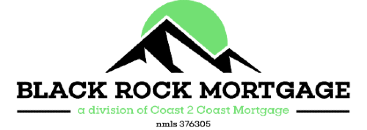Self Employed Mortgage
Self employed mortgage products can mean the difference between buying now or later.Understanding Self Employed Mortgages
The freedom of being self employed is priceless, but self employed mortgage options can be hard to figure out. Typically creditors other than mortgage lenders understand that you may not be showing much net income as a business owner because of tax write offs. When it comes to buying a home however, its a different story. We know and understand your true income might not reflect the standard of living that your net income on your tax returns might show. Fortunately we now have self employed mortgage options for you to use and take advantage of.
Technically a self employed borrower can utilize any loan program available. That includes Conventional, USDA, VA, and FHA financing. Although if you can’t qualify based off of what shows on your tax returns you need to know your self employed mortgage options.

Conventional Self Employed Mortgage Options
Before you use an alternative self employed mortgage making sure you can’t use conventional financing is important. When using conforming conventional financing your loan either gets automatically underwritten through Fannie Mae or Freddie Mac. If you have been self employed for at least 5 years or more through Freddie Mac we can get a self employed borrower approved using one year of their most recent tax returns. That’s important because otherwise you would need 2 years of tax returns and the underwriter would average the income between those two years.
So if you have had a great recent year, or if you plan ahead with your CPA your most recent tax returns could do the trick in getting you approved for a self employed mortgage utilizing conventional financing. The minimum down would be 5%. Any other self employed options requiring alternative documentation for income would require a minimum of 10% down. Also you need someone good to review the income! Additionally we can add back in depreciation and half of your meals and entertainment deductions. This can be done on your schedule C or your corporate returns.
Self Employed Bank Statement Program
If you have been self employed for at least 2 years you can use your bank statements for income with a bank statement mortgage. Either 12-24 months of your personal bank statements or 12-24 months of your business bank statements. Only your deposits would be calculated for income so the debits or net balance are not used for income calculation. Your score must be a 600 to qualify and you have to have a minimum of 30% down. Furthermore for 10% down currently a 680 credit score would be needed. More is required for lower credit scores.
This program can be used for primary residences, second homes, or investment properties. We wouldn’t even look at your tax returns. The debt that shows up on your credit and any other property owned would be included in your debt ratios with a max up to 50%. This is an excellent program for self employed borrowers who couldn’t find financing elsewhere. Visit here for info on our bank statement mortgage program.
If you can prove you were in the same line or work prior to being self employed we can use 1 year of self employment.
Self Employed Debt Calculations
When using conventional or any other government loan program it’s important to remember couple of things. Firstly, when calculating your debt ratios as a self employed borrower there are certain items we can add back in for usable income. This is the case for using conventional or any other financing method besides a bank statement mortgage program or a stated income program. For instance if you are using a schedule C then a portion of your mileage deduction can be added back in as usable income, and depreciation, along with a portion of a couple other items.
Additionally its important to have an expert take a second look at your tax returns if a loan originator has told you that you don’t make enough money. There are options out there and the level of nuance in regards to the guidelines for self employed mortgage loans is quite in depth. Additionally if you have a K-1 from a corporation you own or are part owners of, if there was a significant one time deduction that can be properly documented that isn’t likely to happen again for the foreseeable future, that can be added back in as usable income.
When using bank statements for income, a portion of your deposits will be used as income. Anywhere between 50%-90% of your deposits, depending on the type and size of your business.
Additionally for investors DSCR (debt service coverage ratio) loans might be a good option for you as well!
Why Choose Black Rock Mortgage?
Our team is dedicated to simplifying the mortgage process for self-employed individuals. We understand the complexities of your financial situation and are committed to finding solutions that align with your homeownership goals.
Take the Next Step
Ready to explore your self-employed mortgage options? Contact Keith Meredith directly at +1 (352) 615-1613. Alternatively, you can begin the process by applying for a pre-approval through our website.
Embark on your journey to homeownership with confidence, knowing that Black Rock Mortgage is here to support you every step of the way.

 Feel free to call or text message me directly at
Feel free to call or text message me directly at 
